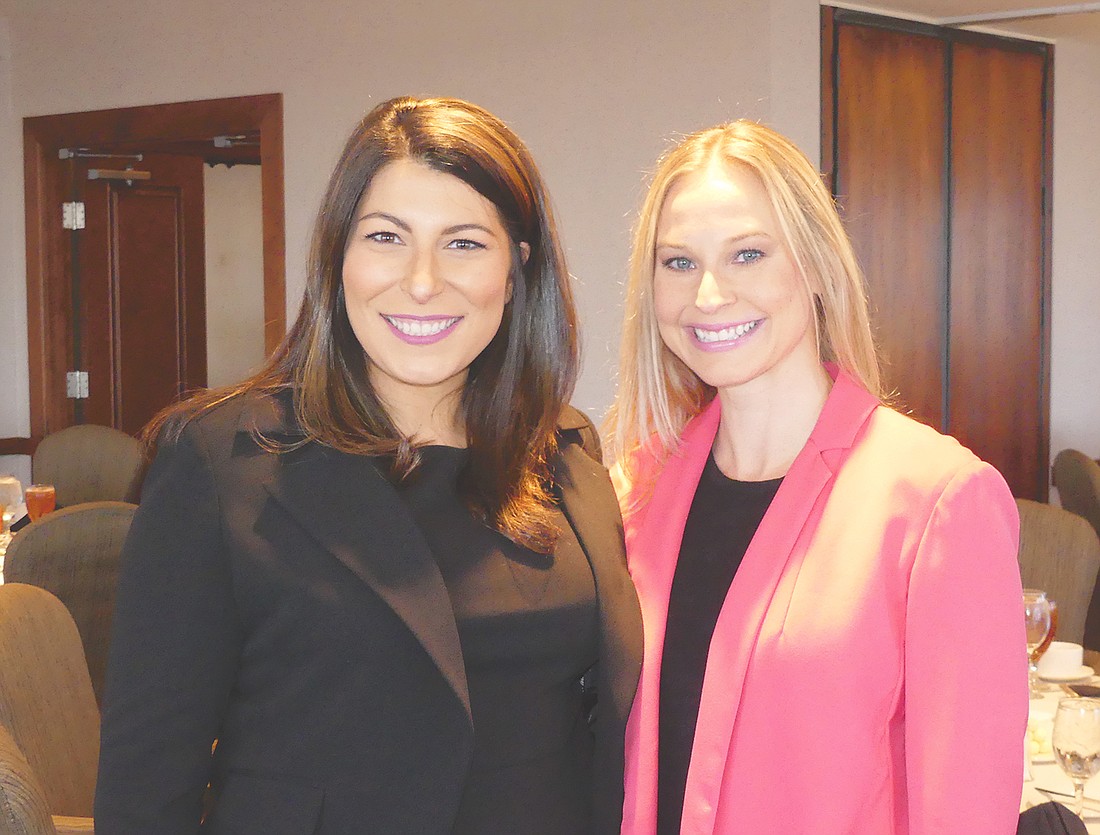
One aspect of an attorney’s career is mobility.
A law degree and a Bar card is a marketable commodity. Except for a new lawyer who follows in someone’s footsteps and joins the family firm, an attorney’s first professional address after law school probably won’t be the last.
Helping a lawyer find her or his next job, helping law firms recruit associates and partners and helping corporations hire in-house counsel is what Tiffany Henson does as attorney search director at Parker + Lynch Legal.
She was the presenter at the Jacksonville Women Lawyers Association February CLE luncheon last week at The River Club.
Henson is a 2008 graduate of Barry University Dwayne O. Andreas School of Law who began her career as an assistant public defender in Orlando. She went into private practice in 2012 and then changed her career to recruiter when she joined Parker + Lynch in 2017.
Henson focused her remarks on what attorneys should consider when they’ve decided it’s the right time to make a move.
While most facets of seeking a new job in law are consistent with those of other professions, Henson said the real work begins in the legal field after a successful interview, when the prospective employer makes an offer and it’s time to begin negotiating.
“Try to get them to throw a number at you,” Henson said.
If that doesn’t happen, have an idea of the average salary at the specific firm and similar firms to establish a starting point, she said.
An emerging law-firm trend is for employers to offer nontraditional benefits in addition to salary.
“Firms and corporations are looking for creative ways to recruit and retain talent,” Henson said.
That can include office snacks, catered lunch on Fridays, a chair allowance and generous, or even unlimited, personal time off.
“It’s about work-life balance. Vacation time can be as important as money,” said Henson.
She encourages attorneys to make the effort to explore new opportunities and develop their careers.
“The worst professional regret is not landing your dream job,” Henson said.
Trial attorney David Dunlap of Dunlap, Ravis & Miller addressed the group about the American Board of Trial Advocates Jacksonville chapter.
A member of the organization’s board of directors, he said ABOTA has about 100 members in Jacksonville dedicated to the preservation of the civil jury trial system, judicial independence, civility and professionalism.
Half of the members are defense attorneys and half are plaintiff’s attorneys, which “gives us a good balance,” he said.
Dunlap pointed out that the chapter’s president-elect, Corrine Hodak, is in the minority in terms of the chapter’s gender balance, so the board is reaching out to the legal community to invite women trial lawyers to consider joining ABOTA.
“They are serious about increasing their diversity, so we should be serious about helping them do that,” said JWLA President Jamie Karpman.